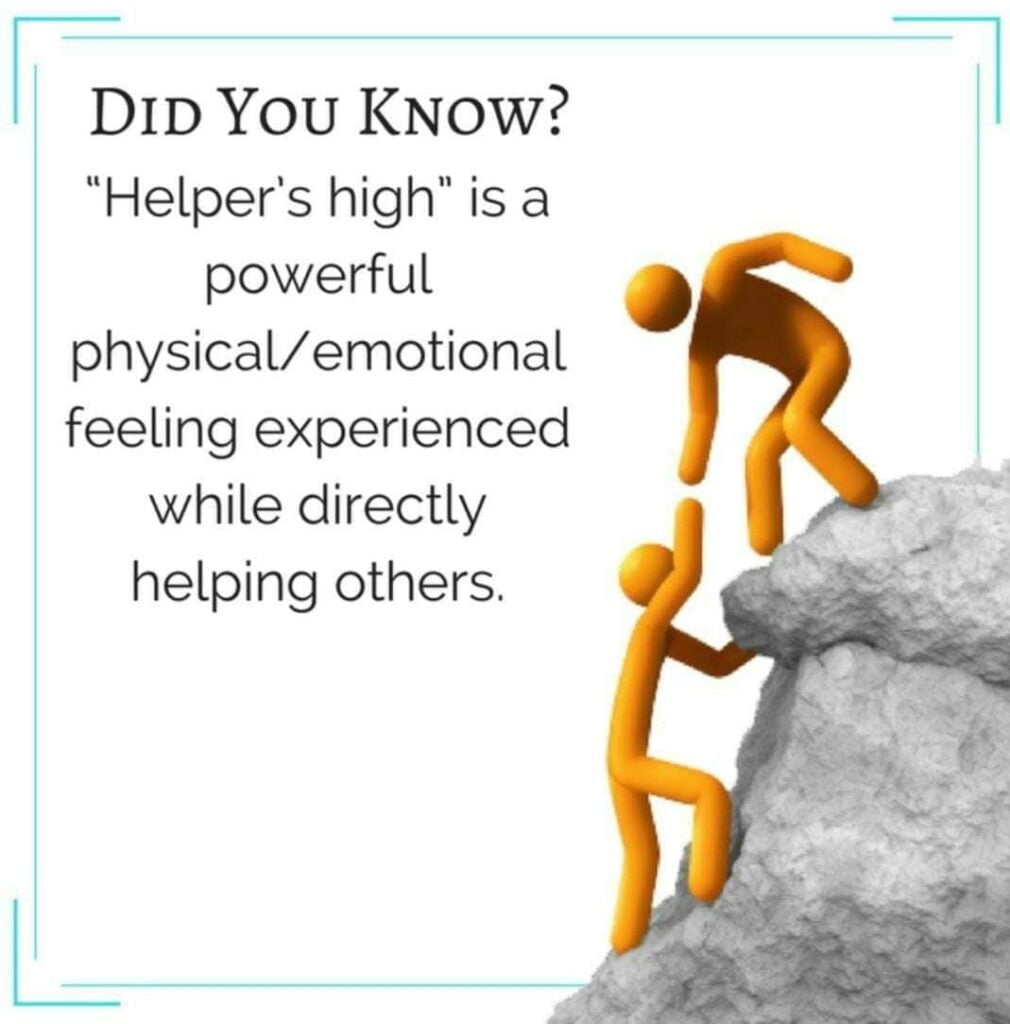28th Oct, 2023
The concept of the “helper’s high” arose in the 1980s, and has been confirmed in various studies since then. It consists of positive emotions following selfless service to others.
Greater health and increased longevity are associated with this psychological state.
This is another name for the uplifting feeling that people experience after doing a good deed or act of kindness.
The Helper’s high is rooted in natural instincts to help our fellow humans.
Evolution has wired us to help each other since helping others is beneficial to human survival.
Psychologists have dubbed the “helper’s high”—a blissful feeling that you get after you do something for someone else that is helpful or kind. These euphoric emotions are attributed to mood-boosting chemicals, mainly dopamine and oxytocin, that are released in the brain after a person performs a good deed and counteract the effect of cortisol (the stress hormone).
Not only are we wired for compassion, we appear to be wired for compassionate action. When we see suffering and feel compassion, it is natural to want to do something in response.
Thich Nhat Hahn, Buddhist teacher and activist, makes the point that compassion does not stop with letting our hearts feel the suffering of others. “Compassion is a verb,” he stresses. Compassion and action go hand-in-hand.
Buddhist teachings use a term that encompasses all these qualities of compassion and altruism: Bodhisattva.
This ancient Sanskrit word means a being who is headed for enlightenment, and specifically refers to those who aspire to that lofty goal for the purpose of liberating all beings from suffering.
The idea of liberating all beings from suffering sounds like a stretch.
But working to benefit others is something any of us can do.
This oncoming Festive season, let us not only feel compassion towards all, but also act on it,
Let’s enjoy the Helper’s High and Stay blessed forever.

